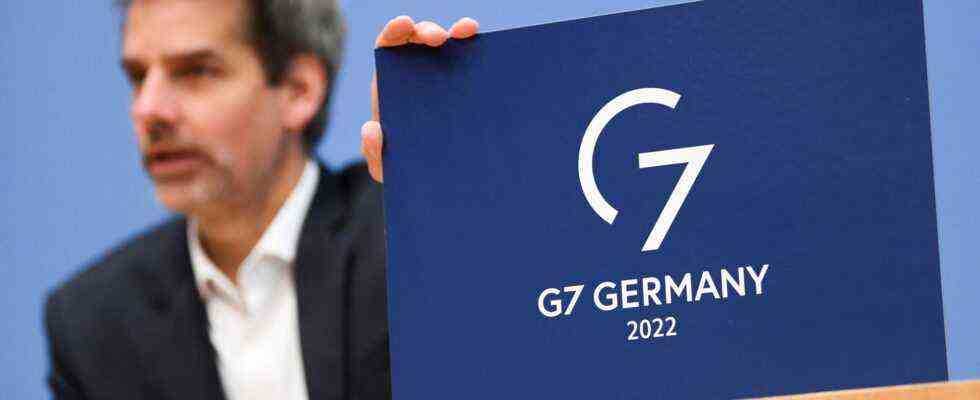Status: 01.01.2022 3:07 a.m.
The German G7 presidency is dominated by climate protection, corona and foreign policy tensions. The members are not yet in agreement on many issues – and the traffic light coalition is still looking for a common line.
You can’t go wrong with football and pop music in international politics either: Foreign Minister Annalena Baerbock referred to the title of a legendary stadium anthem to sum up the guidelines of the German G7 Council Presidency: “You’ll never walk alone. ”
Shortly after taking office, Baerbock traveled to Liverpool in mid-December to meet her colleagues from the other G7 countries for the first time. There she said – as in the club song of Liverpool FC – also applies in politics, “that we can only shape this world together and not alone”.
“Act before it’s too late”
Specifically, this means: Baerbock wants to hold together liberal democracies in times of global tension. She stressed the importance of human rights and international treaties and announced a forward-looking policy. The leitmotif for the German G7 chairmanship is “to act before it’s too late” – for example with a view to the climate crisis and the fight against the corona pandemic.
There are also many other crises, for example the nuclear dispute with Iran and the currently worsening conflict between Russia and Ukraine. Again and again the governments are faced with the question: How to deal with the tours in Moscow and Beijing?
Opposition criticizes “confusion of voices”
There are different positions not only between the G7 countries, but also within the federal government. The opposition in the Bundestag is therefore skeptical about whether Germany can play its key role in the G7 chairmanship.
The deputy chairman of the Union parliamentary group, Johann Wadephul, criticizes a foreign policy “muddle of voices” in the traffic light coalition, in which Chancellor Olaf Scholz has to bring order. As an example, Wadephul referred to Defense Minister Christine Lambrecht’s threats of sanctions against Russia.
At the same time, her party colleague, SPD parliamentary group leader Rolf Mützenich, gave Ukraine joint responsibility for the escalation of the conflict. The Union politician Wadephul declared that it was important now that the political West unitedly oppose authoritarian regimes such as Russia and China.
Summit at Schloss Elmau in June
The debate is not over, which is more likely to lead to the goal in terms of foreign policy: toughness or dialogue? Who sets the course for foreign policy? The Foreign Minister or the Federal Chancellor? Scholz sees no reason to doubt the unity of the government: “The government works together for our country, and we will act together, including on foreign policy issues,” he said shortly after the election of the chancellor.
The federal government officially announced in January which topics it intends to put on the agenda during the G7 presidency. The logo for the German presidency has already been published: it shows the letter G and the number 7 in a minimalist design. The simple logo fits the rather quiet start of the German G7 presidency.
It will be more pompous in June at the latest: Then, as in 2015, the heads of state and government will meet at the summit at Schloss Elmau in Bavaria in an idyllic mountain setting. Then the world will look to Germany.
At the turn of the year, Germany will take over the G7 chairmanship
Markus Sambale, ARD Berlin, December 31, 2021 11:44 am

